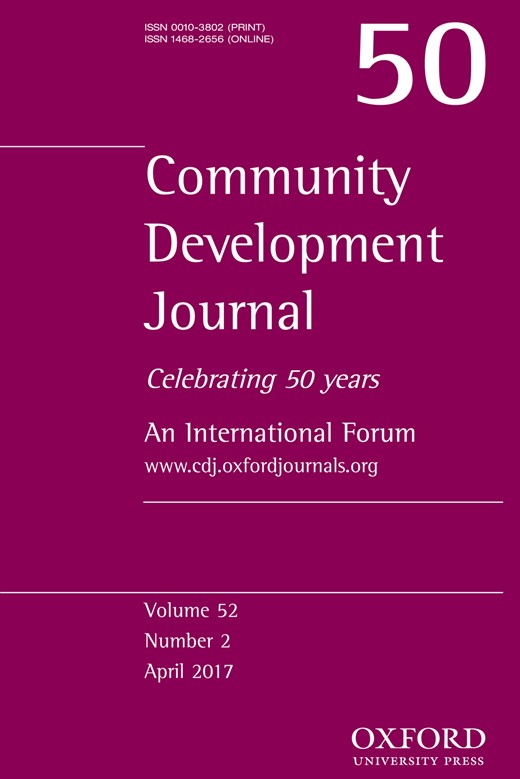-
Views
-
Cite
Cite
Maria Rodrigues, Community therapy? Parallels and distinctions between counselling and capacity building, Community Development Journal, Volume 52, Issue 2, April 2017, Pages 372–377, https://doi.org/10.1093/cdj/bsx004
Close - Share Icon Share
Extract
The first time I facilitated a capacity-building workshop with a group of Indian government officials, I was plagued by self-doubt. What did I know about the challenges that faced them? Who was I to advise? Then I was struck by a revelation: This is not about me. It is about them. My early training in psychology flooded back as I realised that my role in this project bore strong resemblance to my past role as a counsellor. Putting participants at the centre meant placing emphasis on their experience; helping them articulate and transform their thoughts, aspirations, and realities.
Can capacity building be conceptualized as community therapy?
Arnstein's (1968) Ladder of Citizen Participation suggests that this is a bad idea:
[Therapy as participatory planning] is both dishonest and arrogant. Its administrators – mental health experts from social workers to psychiatrists – assume that powerlessness is synonymous with mental illness … the experts subject the citizens to clinical group therapy. What makes this form of ‘participation’ so invidious is that citizens are engaged in extensive activity, but the focus of it is on curing them … rather than changing the racism and victimization that create their ‘pathologies.’ (Arnstein, 1968, p. 5)



